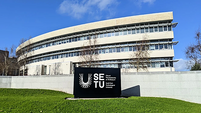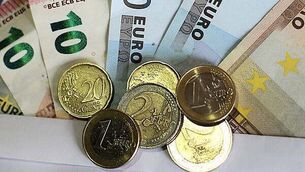Apple tax money grew in value by €470m in 16 months prior to closure of account

Darragh Mc Donagh
The escrow account containing the Apple tax money has been closed, resulting in the transfer of almost €14.25 billion to the Exchequer, the Department of Finance has revealed.
The value of the assets held in the account increased by €470 million in the 16 months leading up to its closure on May 16th, having already grown by €400 million during the preceding year.
This left the total value of the funds at €14.244 billion – slightly less than the €14.3 billion originally lodged by Apple in 2018 after the European Court of Justice (ECJ) found that it had received illegal state aid from Ireland.
The financial assets had depreciated in value for five consecutive years before recording its first gain in 2023 as a result of higher interest rates and investment in assets with higher yields.
Final accounts just published by the department show that the Ireland Apple Escrow Fund increased in value by €475 million in the 16 months prior to its closure, resulting in a €470 million profit after operating expenses.
Following the closure of the account on May 16th, €1.567 billion was transferred directly to state coffers, while €12.677 was paid to the Revenue Commissioners for onward transfer to the Exchequer.
Apple had originally transferred €14.3 billion to the escrow account in 2018 pending its appeal against a European Commission decision, which found that the tech giant owed Ireland €13.1 billion plus interest of €1.2 billion.
Last September, the ECJ delivered its final verdict in the long-running tax case, ruling against Apple’s latest bid to overturn the Commission’s decision.
At the end of 2023, €6.165 billion of the funds in the escrow account were held in financial assets, while €7.629 billion remained in cash or cash equivalents.
Accounts published by the department on Monday note that the investment policy for funds in the account had been agreed by the finance minister and Apple.
Its performance was overseen by an investment committee comprising officials from the NTMA and the tech company.
“The investment objective was to preserve capital to the greatest extent possible in light of the prevailing market conditions,” the department said in a note accompanying the accounts.
“The risk appetite in respect of the fund as specified in the investment policy was ‘low’, with investment permitted only in highly rated euro-denominated fixed income securities.”




